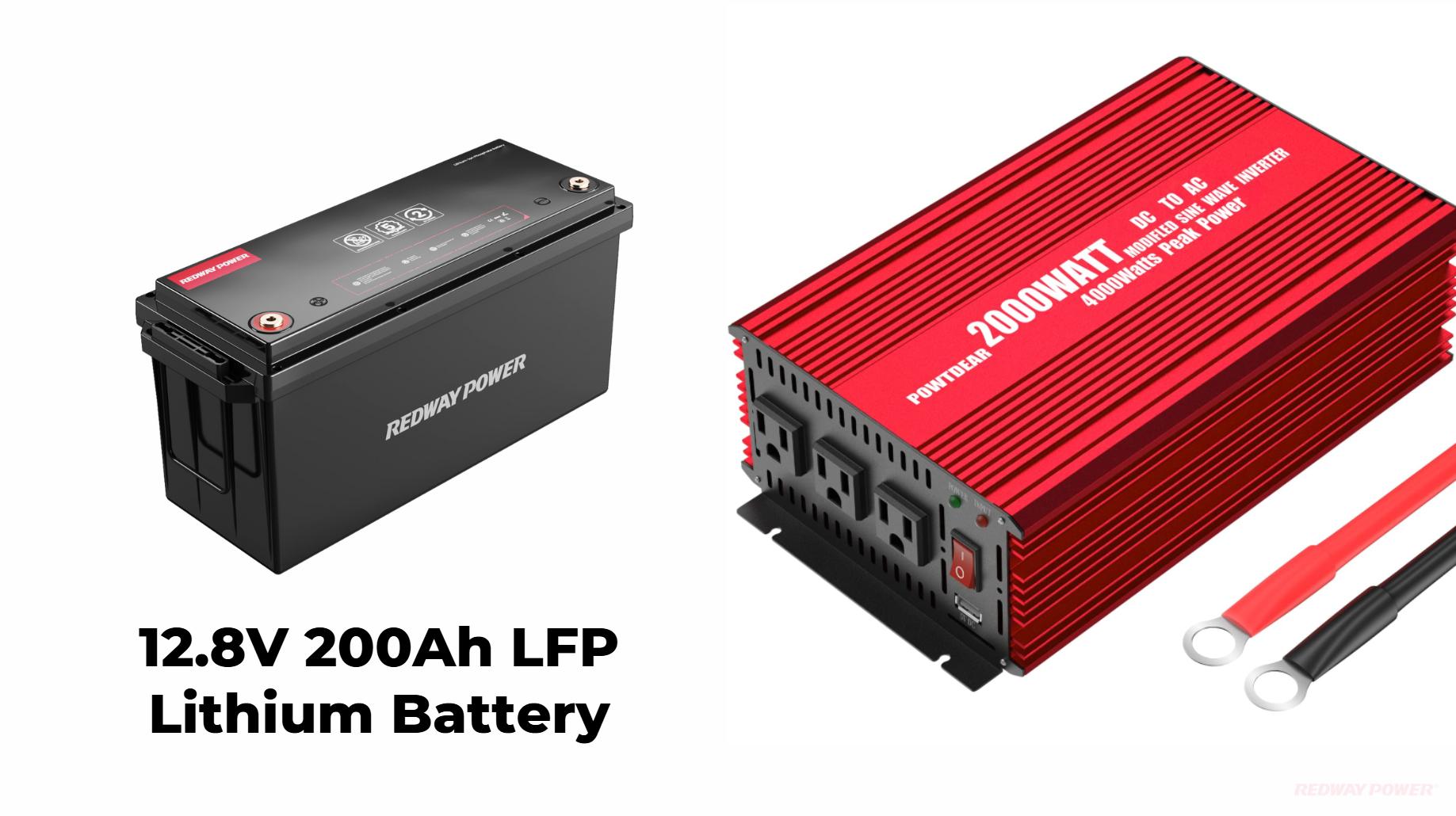Yes, a 200Ah battery can run a 2000W inverter, but the runtime will depend on various factors such as efficiency losses and load demands. Under ideal conditions, it can provide power for approximately 1 to 1.5 hours, but real-world usage may vary.
What Is the Capacity of a 200Ah Battery?
A 200Ah battery has the capacity to deliver 200 amperes of current for one hour or 20 amperes for ten hours at its rated voltage (usually 12V). This capacity indicates how long it can sustain power delivery before needing recharging, which is crucial when considering its use with high-demand devices like inverters.Chart: Battery Capacity Explained
| Capacity (Ah) | Current (A) | Duration (Hours) |
|---|---|---|
| 100 | 100 | 1 |
| 200 | 20 | 10 |
| 300 | 15 | 20 |
How Does a 2000W Inverter Work?
A 2000W inverter converts direct current (DC) from batteries into alternating current (AC), which powers most household appliances. It requires sufficient wattage from the battery to function effectively; thus, understanding how much power your battery can provide is essential.Chart: Power Conversion in an Inverter
| Input Power (DC) | Output Power (AC) | Efficiency (%) |
|---|---|---|
| Up to 2400W | Up to 2000W | ~85% |
What Are the Runtime Calculations for This Setup?
To calculate how long a 200Ah battery can run a 2000W inverter, you can use this formula:
For example, if your battery is rated at 12V, its total capacity in watt-hours is:
Using this value:
This calculation assumes ideal conditions; actual runtime may be shorter due to inefficiencies.
What Factors Affect Performance When Using This Combination?
Several factors can influence how effectively this combination works:
- Inverter Efficiency: Most inverters operate at around 85% efficiency, which means some energy is lost during conversion.
- Surge Power Requirements: Many devices require more power at startup than during normal operation, which could exceed what your inverter can handle.
- Battery State of Charge: A fully charged battery will perform better than one that is partially depleted.
How Do Temperature Conditions Affect Battery Performance?
Temperature has significant effects on battery performance:
- Cold temperatures can reduce capacity and efficiency.
- High temperatures may increase discharge rates but can also lead to overheating and damage.
Maintaining optimal operating temperatures is crucial for both batteries and inverters.
What Maintenance Practices Should Be Followed for Batteries and Inverters?
Regular maintenance ensures longevity and reliability:
- Check battery connections regularly to prevent corrosion.
- Monitor charge levels and avoid deep discharges.
- Keep your inverter clean and free from dust buildup.
These practices help maintain optimal performance over time.
Can You Use Other Types of Batteries with a 2000W Inverter?
While lithium batteries are often preferred due to their high efficiency and longer lifespan, other types such as lead-acid batteries can also be used with caution. However, they may not provide the same performance level or runtime as lithium options.Expert Views“Understanding whether a 200Ah battery can run a 2000W inverter involves more than just numbers; it’s about knowing how various factors interact to affect performance. Proper maintenance and monitoring usage are key to maximizing efficiency.” — Expert from Redway Power
Conclusion
In conclusion, while a 200Ah battery can indeed run a 2000W inverter, users must consider various factors such as efficiency losses, surge power demands, and environmental conditions that affect performance. By understanding these elements, users can optimize their power systems effectively.
How to Size Batteries for a 2000W Inverter
FAQs
- How long will a 200AH battery power a 2000W inverter?
A 200AH battery can power a 2000W inverter for approximately 1 hour under ideal conditions. This is calculated based on the battery’s capacity of around 2400 watt-hours (200AH × 12V), factoring in efficiency losses typical in inverter systems. - Can a 200AH lithium battery handle a 2000W inverter?
Yes, a 200AH lithium battery can handle a 2000W inverter, providing sufficient power for short durations. However, continuous use at this load may lead to quicker depletion, so monitoring usage is essential for optimal performance. - Will a 100AH battery suffice for a 2000W inverter?
A 100AH battery is generally insufficient for a 2000W inverter. It can theoretically provide about 1200 watt-hours, allowing only around 30 minutes of operation at full load before depleting, which may damage the battery. - How long can a 200AH battery run a refrigerator?
The runtime of a 200AH battery running a refrigerator depends on the fridge’s power consumption. For example, if the refrigerator uses 150W, the battery could run it for about 8 hours (2400Wh / 150W), assuming efficiency losses are minimal. - What does a 200AH battery capacity signify?
A 200AH battery capacity signifies that it can deliver 200 amps for one hour or any equivalent combination of current and time (e.g., 100 amps for two hours). This rating indicates how much energy the battery can store and provide over time. - How long will a fully charged 200Ah battery last with a 2000W inverter?
Under ideal conditions, it can last approximately 1.2 hours, but real-world usage may vary. - What type of battery is best for use with a 2000W inverter?
Lithium batteries are preferred due to their efficiency and longer lifespan compared to lead-acid batteries. - Can I use my inverter continuously at full load?
Continuous use at full load is not recommended as it may lead to overheating or damage; it’s advisable to monitor usage closely.



